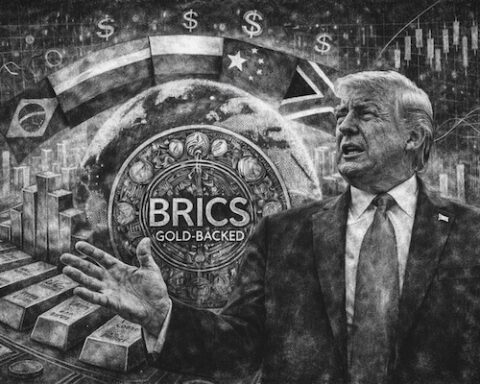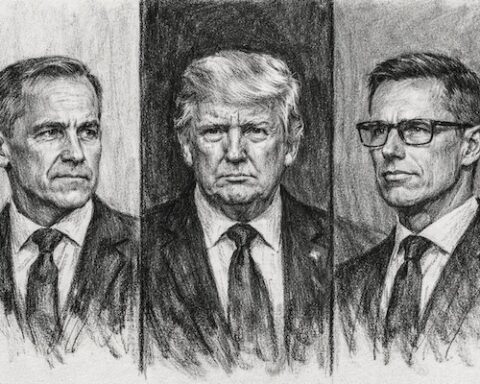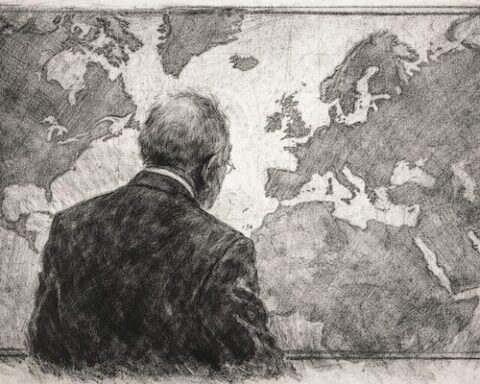The world’s Holy City of Jerusalem, sacred to Jews, Muslims and Christians, is claimed by both Israelis and Palestinians as their capital. Up until now, the U.S. has kept a careful balance as mediator, maintaining its embassy outside of the city. Donald Trump seeks to change that.
Jerusalem, Israel – Daybreak in one of the oldest and holiest cities in the world. Prayer and preparation mark December as a sacred month for Jews, Muslims and Christians alike. This December 10-12th, devout Muslims celebrate Milad Un Nabi, or The Prophet Muhammad’s Birthday. Starting December 24th, through January 1st, Jews celebrate Hanukkah to commemorate the rededication of the Holy Temple (the Second Temple) in Jerusalem, while Christians celebrate Christmas, the birth of Jesus Christ, on December 25th.
According to the Hebrew Bible, King David conquered and established Jerusalem as the capital of the United Kingdom of Israel in the 1st millennium BCE. Christians embrace Jerusalem as the place of Jesus’ crucifixion, and according to the Quran, in 621 CE, Muhammad made his Night Journey there, before ascending to heaven. A holy city to devout followers of three major religions, Jerusalem has been destroyed at least twice, besieged 23 times, and captured and recaptured 44 times.
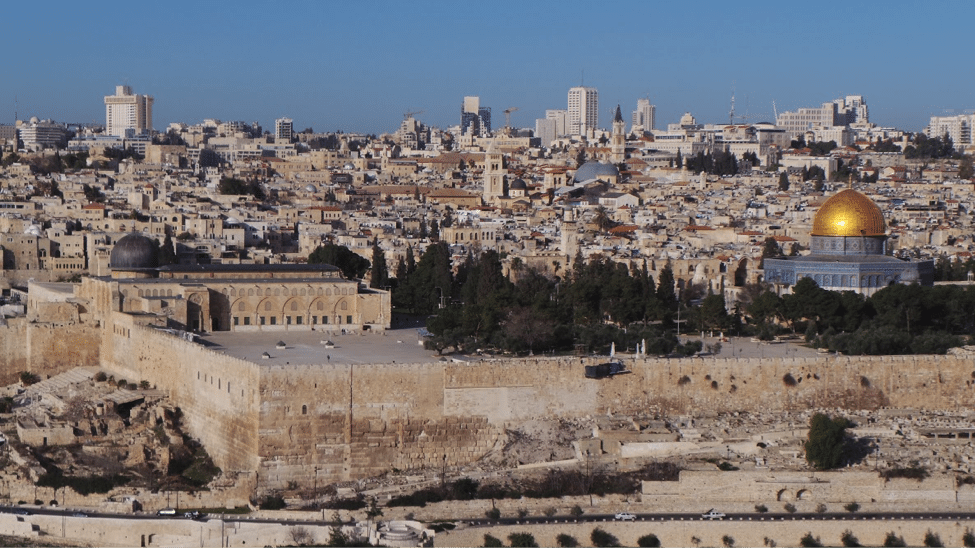
In 1950, the newly established State of Israel had declared western Jerusalem its capital. In the 1967 Six Day War, Israel would capture eastern Jerusalem, later declaring a united Jerusalem as its capital in 1980. The international community, however, refused to recognize Israel’s annexation of East Jerusalem, moving embassies to Tel Aviv, Ramat Gan or Herzliya.
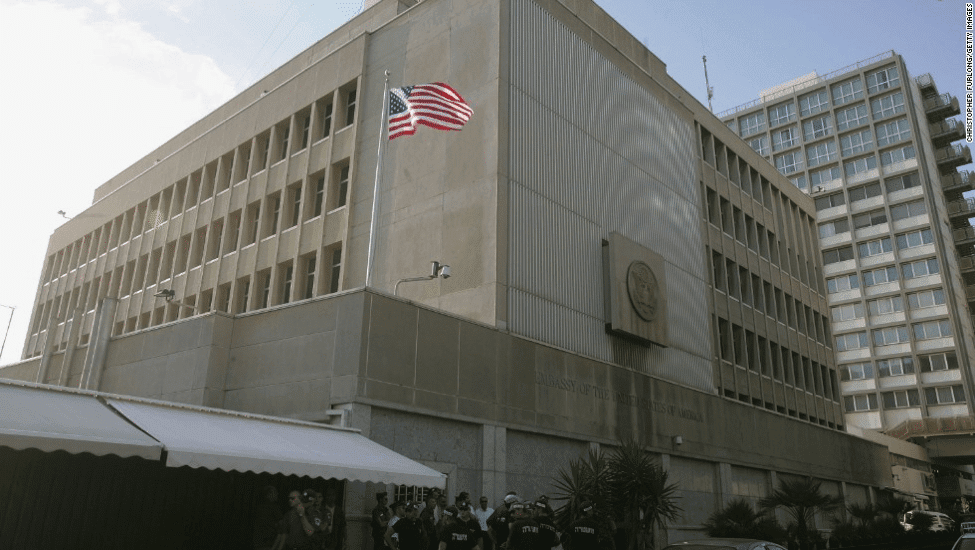
In 1992, amidst mounting pressure, then U.S. presidential candidate Bill Clinton would pledge to transfer the U.S. embassy to Jerusalem. When Clinton failed to deliver, bi-partisan support led the House and the Senate to pass the Jerusalem Embassy Act of 1995. Pursuant to the Act (Public Law 104-45), U.S. Presidents can delay moving the U.S. Embassy to Jerusalem by signing a Presidential Memorandum to suspend the limitations of the Act. Pursuant to the Act, the reason can be to “protect the national security interests of the United States,” as was the case with President Obama’s recent waiver. As per policy, the U.S. has not recognized Jerusalem as Israel’s capital pending a negotiated settlement between Israel and Palestine. The Act has been delayed by three consecutive presidents 35 times.
Critical to the decision to delay is the role the U.S. has as a mediator. If the U.S. is to broker peace between the Israelis and Palestinians, a decision to acknowledge Israel’s claim and move the U.S. Embassy could prove disastrous.
But when the United States stands with Israel, the chances of peace really rise and rises exponentially. That’s what will happen when Donald Trump is president of the United States. We will move the American embassy to the eternal capital of the Jewish people, Jerusalem. And we will send a clear signal that there is no daylight between America and our most reliable ally, the state of Israel. The Palestinians must come to the table knowing that the bond between the United States and Israel is absolutely, totally unbreakable.”
– President-Elect Donald J. Trump, March 21, 2016 speech
During his campaign, President-Elect Donald Trump promised, in a speech to the American Israel Public Affairs Committee, to reverse precedent from both parties by recognizing Jerusalem as the capital of Israel and moving the U.S. Embassy. In a recent interview with the New York Times, Trump stated that he would seek a peace deal between the Palestinians and Israelis. To date, however, Trump has offered no insightful explanation or policy proposals on how to do so.
In a recent interview with Fox News, Trump said he hopes that his son-in-law, Jared Kushner, can help negotiate a peace agreement between Israel and the Palestinians. Kushner, who has a background in real estate and helped run Trump’s presidential campaign has no foreign policy experience. Whether Trump can and will live up to his promise is unknown.
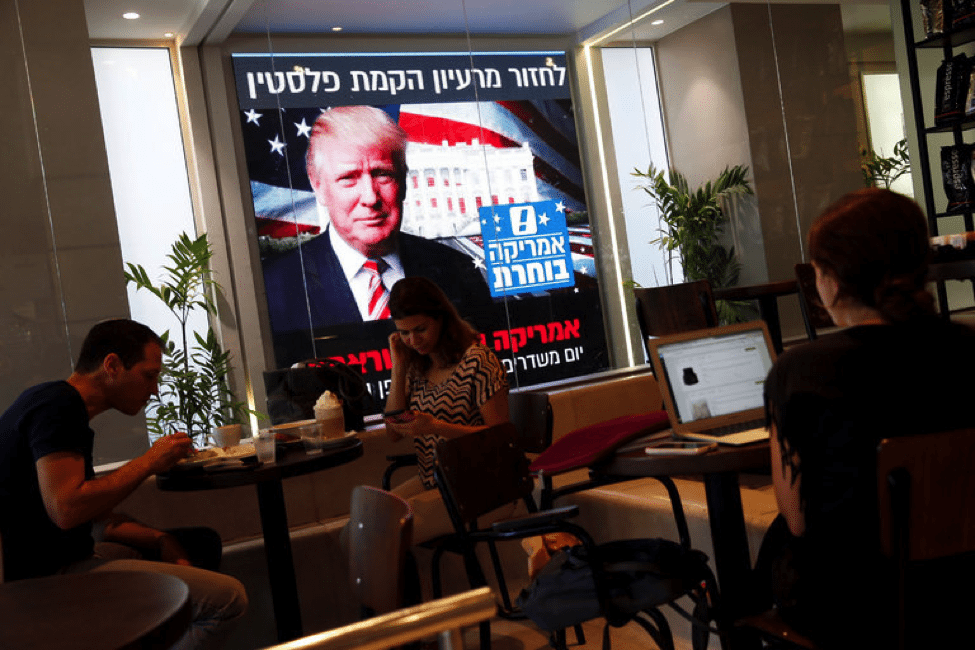
J. David Thompson, Lima Charlie News
J David Thompson (US Army) is a Juris Doctor candidate at Washington & Lee University School of Law focusing on International Human Rights Law. He is a Veterans in Global Leadership Fellow, and brings experience on human rights, international relations, strengthening civil society, refugee issues, interagency collaboration, and countering violent extremism. Prior to Washington & Lee, he served in the US Army as a Military Police officer and Special Operations Civil Affairs with multiple deployments to Afghanistan and one to Jordan—receiving a Bronze Star amongst other decorations. In Jordan, David worked at the US Embassy in countering violent extremism, strengthening civil society, and refugee response with other United States Government organizations, the United Nations, and various non-governmental organizations.
Follow David on Twitter | @JDThompsonLC
Lima Charlie provides global news, insight & analysis by military veterans and service members Worldwide.
For up-to-date news, please follow us on twitter at @LimaCharlieNews

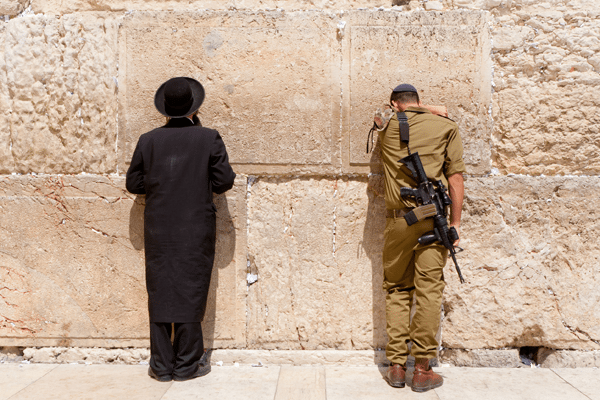


![A Trump war crime pardon dishonors us all [Lima Charlie News]](https://limacharlienews.com/wp-content/uploads/2019/05/A-Trump-war-crime-pardon-dishonors-us-all-Lima-Charlie-News-480x384.png)
